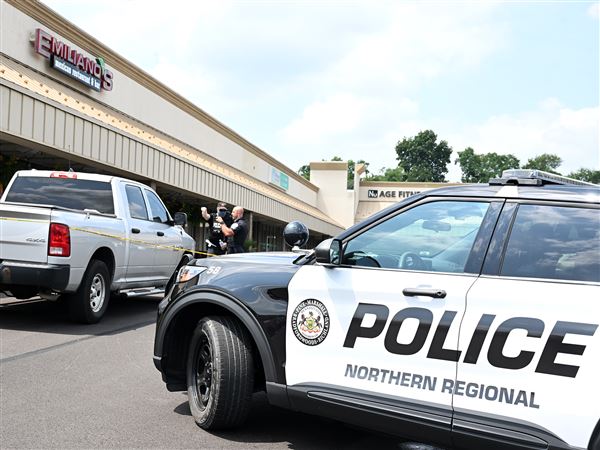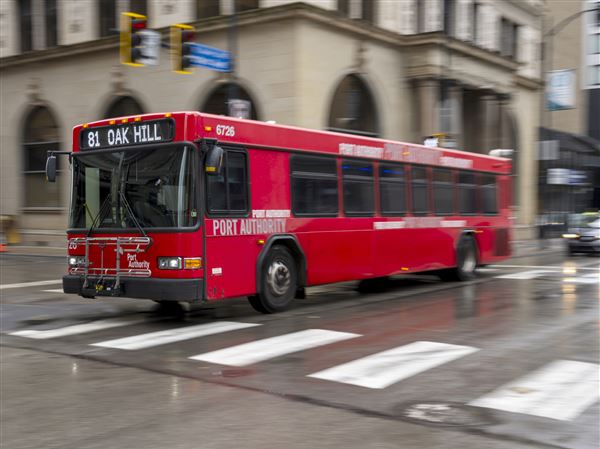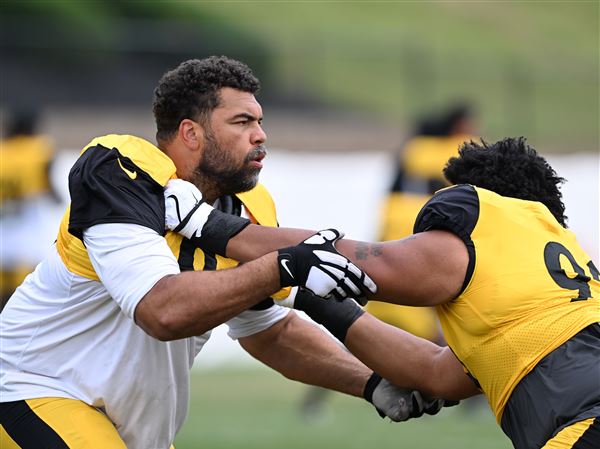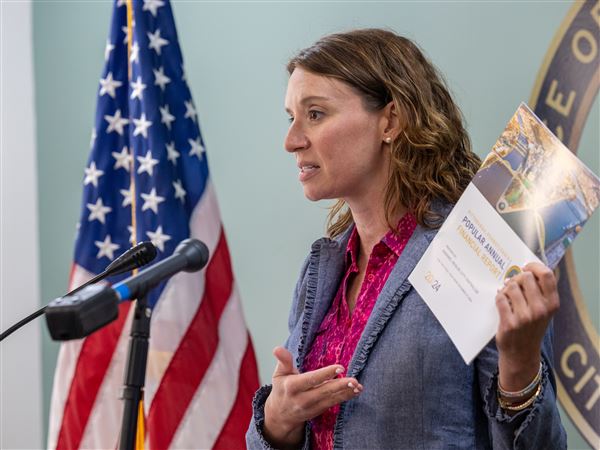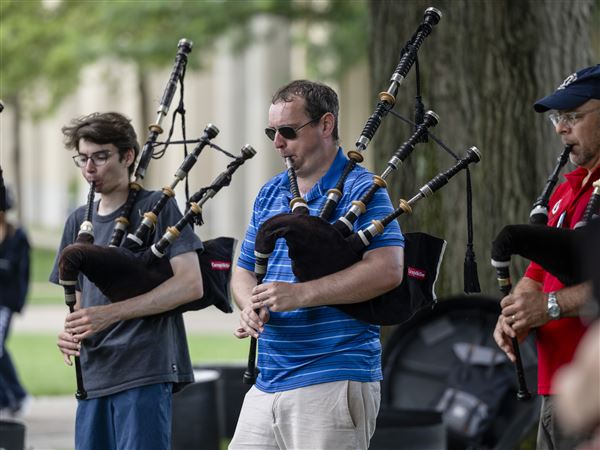If there are people out there who think they can make the whole city of Pittsburgh -- from Fairywood to Lemington to Lincoln Place -- into one big wireless Internet hot spot, Mayor Luke Ravenstahl wants to hear them out.
On Aug. 1, the mayor will issue a request for information inviting companies, groups or individuals who think they can take Wi-Fi or some similar technology citywide to submit their ideas. They'll have until the end of the month to send in their concepts, and the city expects to follow up in the fall with a request for formal proposals.
Mr. Ravenstahl said he doesn't know what technology is best for the city, but wants to "gauge an opportunity for the city of Pittsburgh. ... There's a lot of flexibility in the [city's] process."
He has one stipulation, which could prove a deal-breaker: Any package has to include the entire city.
"I'm not interested in piecemealing neighborhoods versus neighborhoods," he said.
City Councilman William Peduto, who has worked on citywide wireless Internet efforts for three years, said some firms want to cherry pick neighborhoods, while others "want the exclusive rights to provide Wi-Fi in the city. ... I want to have competition."
The administration's effort starts 10 months after the Pittsburgh Downtown Partnership switched on free Wi-Fi in the central business district.
On an average day, around 200 people dial into Downtown's Wi-Fi system, and its operator, US Wireless Online, has sold around 10,000 subscriptions for longer-term and faster service, according to the partnership.
"It's a good, positive and effective amenity for Downtown," said partnership President and Chief Executive Officer Michael Edwards.
Mr. Ravenstahl said he wants the quality-of-life, talent attraction and business retention benefits that Downtown now enjoys to be extended to every neighborhood.
Mr. Peduto agreed, saying the city should be divided into "zones" that different wireless providers could bid on. They would have to cooperate so that people moving from one zone to another would not lose service, but compete on price.
Taking Wi-Fi citywide makes sense, Mr. Edwards said.
"The city timing on this could be a challenge," he added.
That's because companies that were offering to put up free Wi-Fi systems a year ago, intending to make profits on subscriptions or ad sales, aren't making such offers today.
Within the last month one major player, EarthLink, suspended its effort to market and build new systems, while three cities -- Toledo, Ohio, Anchorage, Alaska, and Clovis, Calif. -- shelved Wi-Fi efforts when they realized they'd have to either help pay for installation or make substantial yearly payments for their use of the systems.
"It's unlikely in the current climate that any major citywide Wi-Fi service provider will offer to take on Pittsburgh's network and bear all the costs with no upfront service fee agreement," said Glenn Fleishman, author of the respected Web blog wifinetnews.com.
"In Pittsburgh's shoes, I would wait until after Jan. 1, then evaluate what's changed" before issuing a full-fledged request for proposals.
City information systems director Howard Stern said his approach is to ask now for ideas, so the city can "see what cutting-edge technologies are out there."
Besides serving every neighborhood, he wants the system to provide free access for the city, which is steadily expanding its use of mobile computing. The right deal could save the city money by undercutting the $50 a month it pays for cellular Internet access for each of the 150 police cars equipped with mobile computers, said Mr. Stern.
The city's leverage in negotiations is its unique ability to provide places to post antennae in every neighborhood, thanks to its control of police, fire and paramedic stations, light posts, public works facilities, parks and other property. If wireless providers want that access, they'll have to negotiate.
On the other hand, any company inclined to consider building a citywide network will have to consider the fact that some potentially lucrative neighborhoods are already getting service.
This month, Shadyside's Walnut Street corridor got Wi-Fi courtesy of Jonathan Plesset, owner of the Shadyside Inn. On Friday, he was expecting to log his 1,000th user.
"There's no reason we couldn't do this in Squirrel Hill or South Side," he said. His plan is to have business owners in those areas chip in to cover the costs of the system, so their clientele could use it for free.
He'd like to talk with the city about its plans, but said he believes it makes most sense to "just do it neighborhood by neighborhood."
Because the city isn't wedded to the current generation of Wi-Fi, it can entertain discussions about emerging technologies. A faster version of Wi-Fi, called 802.11n, is in development.
Companies Clearwire and Sprint Nextel are working together on "mobile WiMax," which could prove better than Wi-Fi at covering large areas and penetrating building walls, said Mr. Fleishman. He said those companies could deploy their networks within a year or two without any city help or money.
First Published: July 23, 2007, 3:00 a.m.
